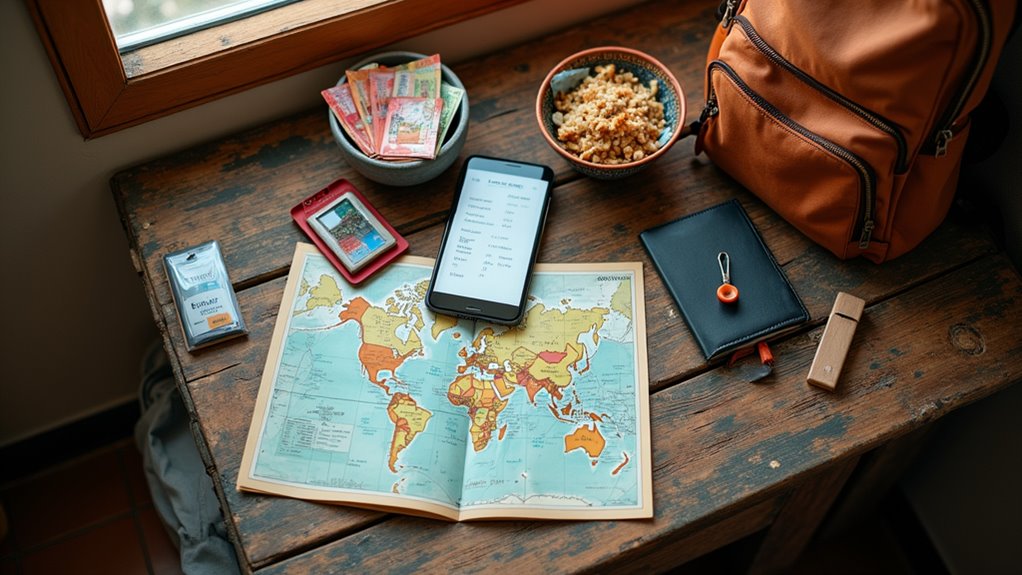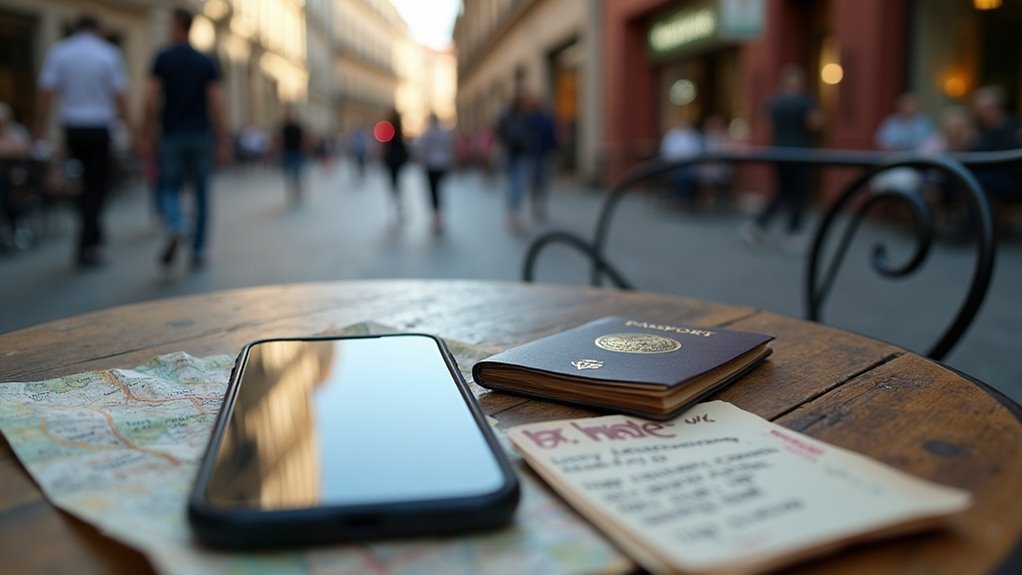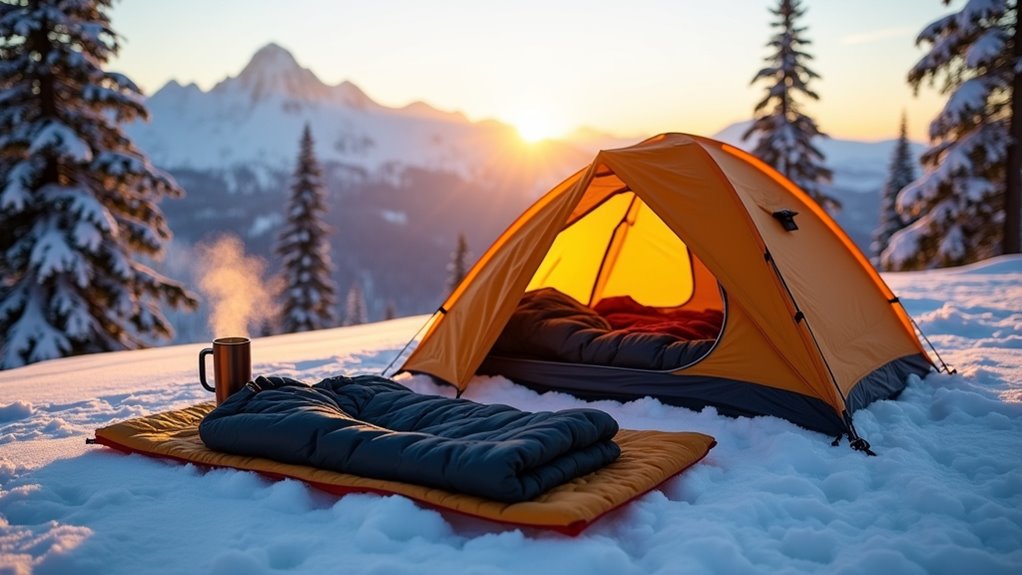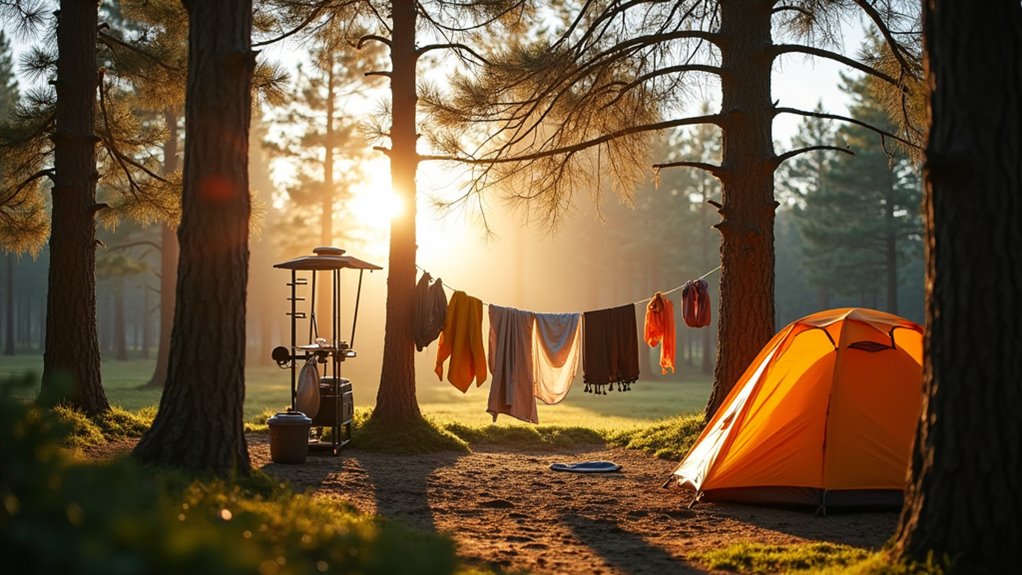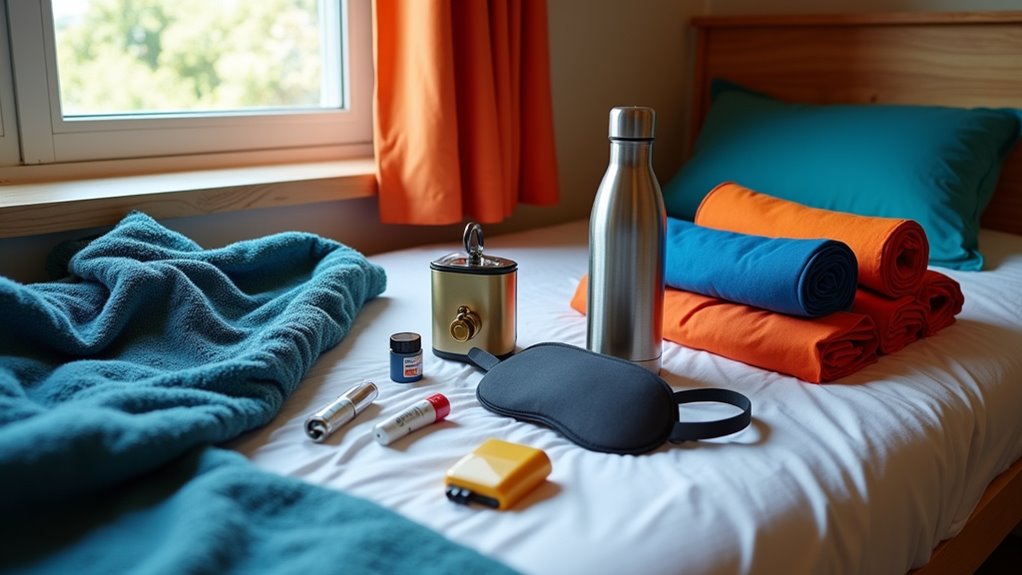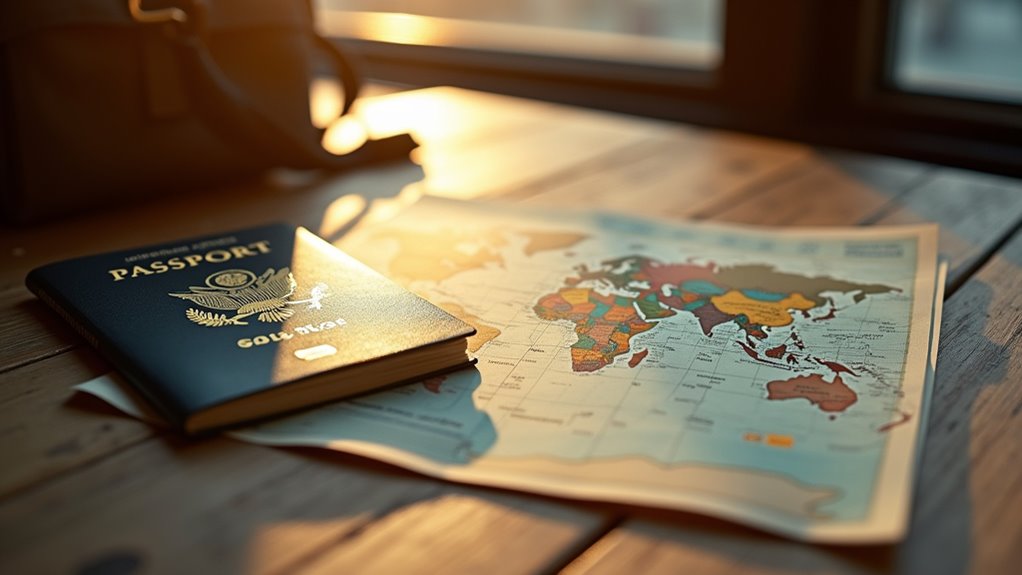You typically fund backpacking by saving money from pre-trip jobs, stretching your budget with hostels and local cuisine, and seeking deals on flights and gear to minimize costs. Many backpackers reduce expenses by tracking daily spending, using local transportation, or volunteering for accommodation. If you work freelance or join work exchange programs, you can earn while traveling. Managing expenses and planning in detail allows you to travel long-term on modest funds, and there are even more strategies you can explore.
Although backpacking offers the freedom to explore diverse regions on a limited budget, managing travel finances requires strategic planning and informed choices. You’ll find that most backpackers rely heavily on money saved from pre-travel employment, as savings remain the primary funding source. Before departure, focusing on securing flight deals and purchasing discounted gear helps minimize upfront costs.
Smart planning and savvy budgeting let backpackers stretch their savings and enjoy global adventures without breaking the bank.
Once traveling, you’ll notice daily expenses fluctuate considerably by region—$35 per day in Southeast Asia covers hostels, meals, and local transport, while US cities may cost you upwards of $95 per day. Prioritizing low-cost accommodations such as hostels, Couchsurfing, or even overnight buses can drastically reduce lodging expenses, especially if you’re willing to share rooms or rides with other travelers. Over 80% of backpackers have stayed in hostels during their travels, which significantly helps keep accommodation costs affordable. In fact, tracking expenses daily is strongly recommended by seasoned travelers, as it keeps you accountable and helps ensure you stick to your planned budget.
If you stay longer in affordable regions, such as three-month stops in Southeast Asia or Central America, you can stretch a $12,000 annual budget quite far. Many backpackers also choose local foods over tourist restaurants, keeping food costs manageable, although dining still often remains the largest daily expense.
Transportation ranks as the second biggest cost, particularly if your itinerary covers multiple countries, but you can cut this down by hitchhiking, using discount travel cards, or traveling during off-peak seasons for better rates. Volunteering opportunities can provide both free accommodation and transportation in exchange for a few hours of work daily, making this an excellent option for extending your travel budget.
Work exchange programs, like volunteering for accommodation, and seeking out seasonal work or freelance gigs, allow approximately 16% of backpackers to earn money while on the road. The digital nomad trend has grown, with 10% of travelers now prioritizing hostels that offer co-working spaces to support remote work. In developing nations, favorable currency exchange rates provide added purchasing power, making your budget go further.
Expense patterns show that solo travelers spend 20–30% more than those traveling in pairs, and digital nomads must allocate funds for work-related needs. To manage unexpected costs, you should always keep a contingency fund for emergencies like medical issues or gear replacement.
Cooking your own meals, leveraging local SIM cards, and prioritizing free attractions or walking tours are additional strategies to control spending without compromising your travel experience.
